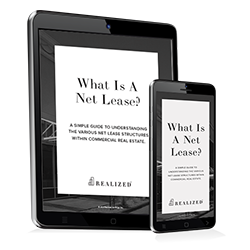Page 6 51 - 60 of 98
What Is A Modified Gross Lease?

A modified gross lease is a variety of commercial real estate lease. In this structure, the tenant pays base rent and a proportional share of some other property costs, including taxes, utilities, insurance, and maintenance. A modified gross lease sits between a gross lease, where the landlord pays for all operating expenses, and a net lease, which passes on property expenses to the tenant.
What Is A Triple Net (NNN) Lease, And What Does It Mean?

As a property owner and investor, executing a lease with a tenant might seem like a routine matter. However, many different types of lease structures are used throughout the commercial real estate industry. A landlord can choose among gross, modified gross, and several variations of a net lease to find the form that best meets their needs, depending on the property and the tenant.
What Are the Advantages of Investing in Triple Net Leases in California?

When it comes to the potential advantages of investing in a triple net lease in California, here’s something to consider: one of every eight people in the United States lives in the Golden State.¹
What Are the Advantages of Investing in Triple Net Leases in Florida?

Florida is well known for its warm weather, sun-soaked beaches, amusement parks, and the Kennedy Space Center, but it also can be a great place for business.
How to Get Out of a Commercial Lease in California

Signing a long-term lease on a commercial property in California can bring about increased risk for your business since you’ll be on the hook for making those lease payments for three to five years, if not longer.
What Are the Advantages of Investing in Triple Net Leases in Texas?

Real estate investors have long looked to Texas for commercial (and residential) investment properties. Small wonder – Texas has many large metropolitan areas that continue to flourish and grow, and it’s earned a reputation as a tax and business-friendly state. Tesla and Oracle already abandoned their California headquarters for new digs in Austin, while Hewlett-Packard is moving its corporate operations to Houston later in 2022.¹
What Are the Pros and Cons of a Single Tenant Net Lease?

Real estate investors seeking investment properties that offer the potential for fewer managerial duties and lower owner costs often turn to single tenant net leased assets. Single tenant properties are 100 percent occupied by a solo tenant that is responsible for paying all maintenance costs, as well as property taxes and insurance, which can result in fewer ongoing financial responsibilities for the property owner.
What Is a Triple Net Ground Lease?

If you own a piece of land, entering into a triple net ground lease (NNN) can offer you long-term, passive income. By partnering with a developer on an NNN, you may be able to grow your real estate investment portfolio, earn money, and defer capital gains taxes you would have owed on selling your property.
How Does Depreciation Work On a Triple Net Lease (NNN)?

Depreciation is one of the best tax deductions for real estate investing. It’s a non-cash flow expense because it doesn’t affect an investor’s bank account but can reduce taxable income.
How to Find a Net Lease Advisor

Many real estate investors are on the hunt for net-lease properties for a variety of reasons. One such reason is because they can provide a source of passive income for a period of time, without the need to handle (or pay for) the administrative aspects of property ownership.
Page 6 51 - 60 of 98


